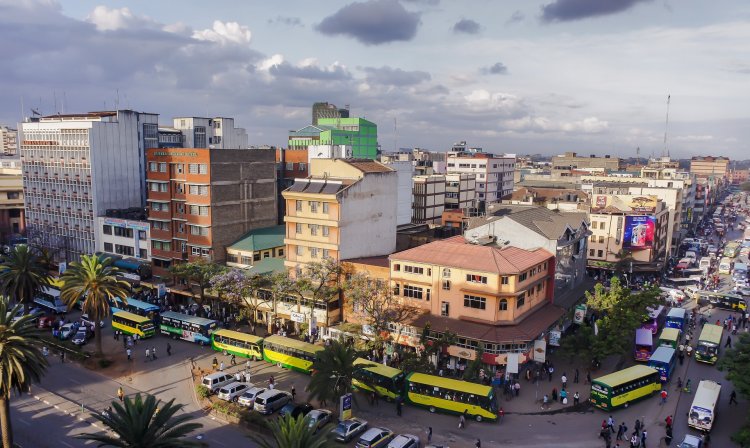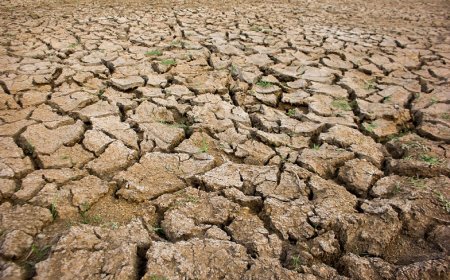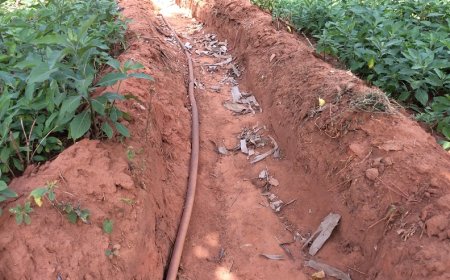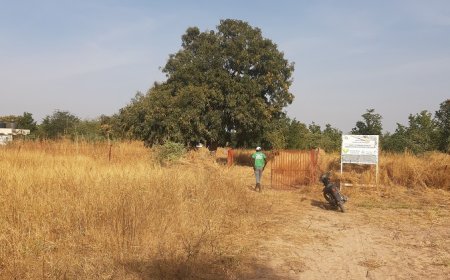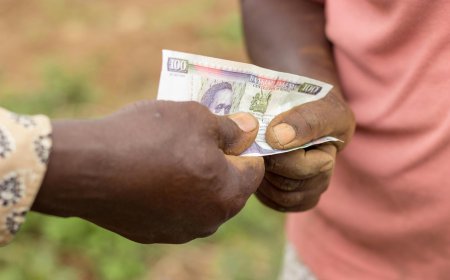This article is part of a series of special thought pieces that APRI published in partnership with the African Climate Foundation in the run up to COP27 in Egypt. The series is titled “What does the Just Transition mean for Africa”.
Summary
- The majority of African cities are vulnerable to extreme weather hazards that impact the livelihoods of city-dwellers, yet cities are rarely included in the main policy agenda for climate adaptation.
- Much of the existing research agenda on urban climate resilience and adaptation has historically been set by the Global North, producing a gap in knowledge of the African perspective.
- African cities are increasingly developing much needed climate adaptation policies and plans, but often, the capacity for implementation is still limited.
- City governments and local authorities require support to develop and implement integrated and inclusive planning for urban climate adaptation.
- An urgent and concerted effort is needed from governments to drive equitable climate adaptation and this needs to be tabled at global platforms such as the UNFCCC COPs. COP27 must highlight the impact of climate change on urbanisation in Africa. A focus on city governance and climate finance can carve a path for a just urban transition.
Background
Just transitions initially focused on climate change mitigation because of the need to transition economies away from fossil fuels and ensure the impact on the economy and livelihoods would be fair (for example, see the work of WRI). It is increasingly evident that just transitions need to also think about fairness when adapting to climate change and reducing climate risk. For adaptation to be just, it must meet the needs of vulnerable groups most exposed to climate risks. These include low-income households without the insurance or resources to replace damaged goods and infrastructure; or people living with disabilities who will be disproportionately affected by climate change impacts.
Cities are on the front lines of climate change and need to adapt urgently. This message came through more clearly than ever in the IPCC WGII report ‘Climate Change 2022: Impacts, Adaptation and Vulnerability’ released earlier this year, between COP26 and COP27. Despite this growing recognition, there does not seem to be enough focus paid to urban issues at COP27, with no dedicated “thematic” day on this topic. There are, however, some events with an urban focus and the COP27 Presidency of Egypt co-hosted a workshop earlier this year on Sustainable Cities with the United Nations Human Settlements Programme (UN-Habitat) and ICLEI – Local Governments for Sustainability.
African cities are areas of particular focus for climate adaptation, given urbanisation trends and the increasing concentration of people in urban centres. Yet African cities have been slow to push climate adaptation and mitigation policies and practices. COP27, an “African COP”, is putting more emphasis on agriculture and biodiversity in the “thematic days”. Although these themes have been important for Africa historically, the rapid growth of African cities requires national and regional policy makers to focus more attention on urban issues in general and climate issues specifically, in order to reduce vulnerability and address mitigation urgently.
Insufficient attention has been paid to ensuring that adaptation is equitable, particularly in African cities, where there is rapid development and high levels of inequality. This piece argues that equity and justice need to be more actively pursued as part of African countries’ agenda at COP27. Much of the existing research agenda on urban climate resilience and adaptation has historically been set by the global North, producing a gap in knowledge of the African perspective. How equity and justice might be better addressed in cities is an emerging question requiring an African response.
The nature of vulnerability to climate risk in African cities
There is an urgent need across African cities to better understand how to prepare for extreme weather hazards. Climate impacts such as flooding, strong winds, and heat waves directly impact livelihoods, ecosystems, and economic security. Coastal cities are particularly vulnerable to worsening storm surges due to rising sea levels.
UN-Habitat estimates that more than half of Africa’s urban population live in slums and informal settlements where population growth is expected to occur. Most slums are built on land that is highly vulnerable to climate impacts, such as wetlands or degraded land. This impacts housing and infrastructure, requiring adaptation efforts to reduce the impact to climate risk for roads, sewerage, and ecosystems. Interventions are also needed to build sustainable housing that can better withstand flooding and extreme heat. The lack of public services in slums contribute to multiple household vulnerabilities, making it challenging to adequately prepare for climate hazards or to invest in sustainable adaptation responses. For example, during a flood, a resident may lose their home and possessions whilst simultaneously suffering health consequences. Loss of official documents might make accessing health services, education, and employment harder. Slums are not homogenous, and different resources and interventions are required to address these challenges.
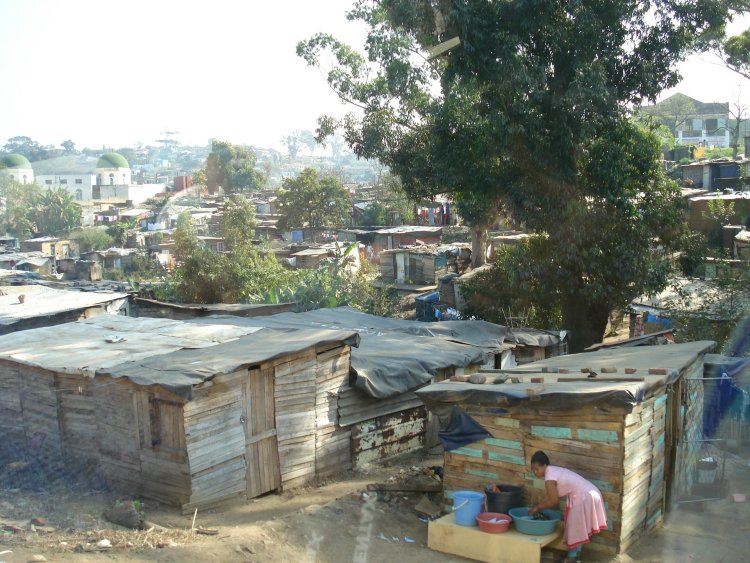
Nonetheless, innovation is occurring in slums around water provisioning, housing, energy systems and transportation. In Kampala, organic waste has been turned into briquettes used for cooking, reducing the number of trees cut for charcoal and the amount of waste going to landfills. Residents in an informal settlement in Nairobi have invested savings to reduce flood risk, mobilised youth groups to disseminate environmental information, and participated in activities such as tree planting to stabilise riverbanks. These local initiatives demonstrate not only the importance of innovation but also the need for an inclusive community led process that identifies adaptation needs, priorities and programs. Unfortunately, most cities have poor data on slum dwellings, making it difficult to understand where adaptation interventions could be prioritised and best suited to the local context.
There is an increasing push for ecosystem-based adaptation to become a more central component of urban climate resilience. Ensuring that green spaces, trees, and waterways function effectively helps to reduce flood risk, lower urban temperatures, and produce more attractive urban spaces. Local governments need to be better resourced to support such solutions which currently tend to be underfunded and not sufficiently prioritised.
Importance of integrated and inclusive planning for urban climate adaptation
The growing risk of climate impacts on cities demand an urgent, preventative response to reduce its impacts on people, the environment, and economies. African cities are increasingly developing much needed climate adaptation policies and plans, but often, the capacity for implementation is still limited. However, many of these plans are sector based and, therefore, not holistic. Climate events have demonstrated the importance of understanding the city as an interconnected system with multiple components. This is crucial to avoid responses that undermine other sectors and lead to maladaptation.
The Cape Town drought of 2017 highlighted the value of a more holistic approach. Before the drought, the City of Cape Town focused on improving water supply and reducing consumer water use. As the drought unfolded, it became clear that the impacts of a city-wide climate hazard were so far reaching that the city’s response had to extend to health, business, socioeconomic, and environmental factors, which required greater collaboration across the city’s government departments. The drought also highlighted the stark inequalities in the city, particularly how low-income communities struggled to secure water. Although some progress was made, more work is needed in a city where many do not have running water in their homes and cannot afford basic water services. Following the drought, stronger relations were in place between the water sector and other departments. One notable outcome was the new ‘Water Strategy’ that emerged as a more integrated response that considered climate change science, environment and society more directly.
A key policy lesson is that city governments need to support climate adaptation policy and implementation ahead of disasters and ensure that there are experts from multiple sectors involved in planning processes. There need to be opportunities to engage with diverse actors, including residents from slums, civil society groups, non-governmental organisations (NGOs), and businesses to understand what the impact of proposed responses might be and how diverse needs might be met. Such engagements should not be tokenistic; sufficient budget and personnel need to be ensured for the co-creation of climate adaptation solutions that meet the multiple goals of those living in cities.
How governments can embed equity in urban climate adaptation governance
International donors often fund projects with short timelines that make it difficult to identify, build relationships with and co-create adaptation projects with local communities. Larger or established organisations often have more capacity to access funding than smaller organisations, which consequently can have implications for less resourced and marginalised groups. This requires careful attention alongside capacity development support to ensure that those most in need can access climate finance. At COP27, there will be a focus on fulfilling historic climate finance promises to developing countries. The question is whether these will be carried through and whether there will be sufficient attention to how this money flows to cities and the most vulnerable.
City governments need to provide an opportunity for diverse groups to engage in equitable urban adaptation. For example, youth in Lobito and Luanda in Angola used social media campaigns to create awareness and pressure local authorities to rehabilitate their natural environments. They fostered greater support from their communities by broadening their focus beyond environmental issues and showing how healthy ecosystems help the community to thrive with access to clean water and flourishing fish habitats. Local governments need to improve opportunities for collaboration with non-state actors, particularly NGOs and youth groups.
A central part of strengthening equity is understanding how to foster diverse perspectives that inform the development of climate adaptation responses. Participatory governance can help carry the burden together. Together refers to working across boundaries, planning together, and listening to the needs and priorities of different communities. In addition, locally led adaptation projects need to carefully consider how climate change affects individuals based at the intersections of various socio-economic parameters, such as income, education, gender, and health. Consequently, far more attention needs to be paid to procedural justice that addresses these inequalities and seeks to find processes that deliberately acknowledge power differentials and amplify voices that are not usually heard.
Priorities for a just urban transition
Although there are many ways to support a just urban transition, two priority areas are useful starting points for driving an African position at COP27 on more equitable adaptation.
First, it is important that African countries focus on urban governance and leadership. Decision-making must involve multiple parties, including environmental experts, local governments, city residents, and interested parties. This helps to create more inclusive climate risk planning for the present and future. To achieve this, structural barriers to effective participation need to be addressed and transparency prioritised. This includes ensuring that civil society organisations have the resources to actively engage in decision-making processes, which is supported by the COP27 thematic day on civil society. The presence of a facilitator who can address underlying power dynamics and ensure that local community voices are heard has been found to be effective.
Second, finance is critical for the transition between urban climate policy and action that reduces climate risk for vulnerable groups. Although climate finance agreements are due to be a focus of COP27 discussions, there needs to be an additional focus on ensuring this finance reaches African cities. Emerging from COP27, there needs to be more focus on how authorities that manage public sector budgets can mainstream equitable climate adaptation. National governments need to work with city governments to explore how public and private finance can be used strategically to enable long-term climate adaptation and to leverage more finance options for cities in the future instead of short-term initiatives.
An urgent and concerted effort is needed from governments to drive equitable climate adaptation and this needs to be tabled at global platforms such as the UNFCCC COPs. Global support will help African nations make substantial progress towards a just urban transition. Failure to act will have significant costs in the form of both direct climate impacts and indirect costs to the rest of society.
About the Author
Gina Ziervogel is an Associate Professor in the Department of Environmental and Geographical Science at the University of Cape Town, South Africa. Her research focuses on climate change adaptation and development across scales from the household to the municipal level, with a focus on water, urban governance and resilience issues. She was a lead author on the Intergovernmental Panel on Climate Change (IPCC) 6th Assessment report, Cities, settlements and key infrastructure chapter. She has authored numerous papers, book chapters and popular articles. In 2020 Gina was awarded the UCT Social responsiveness award.
